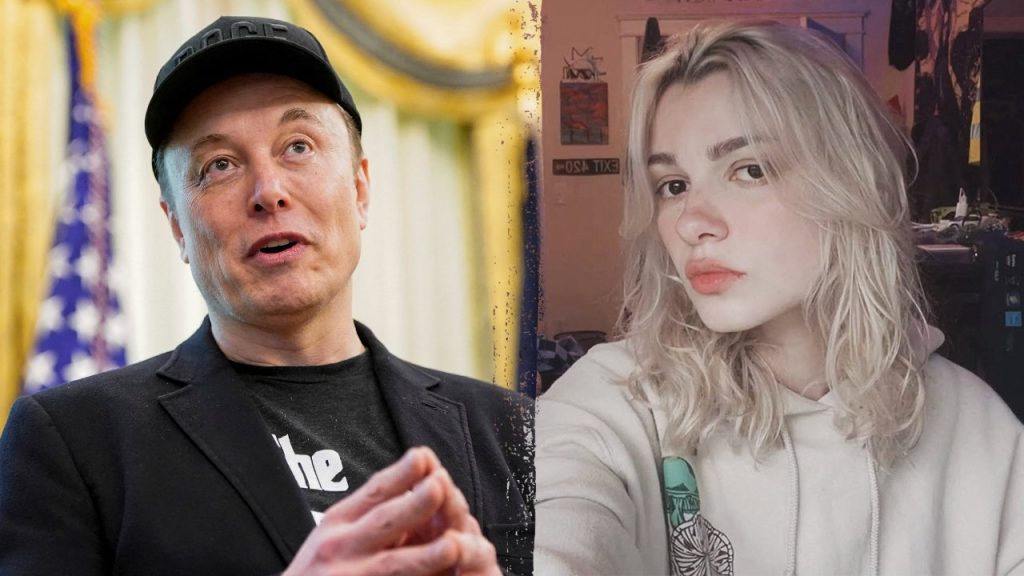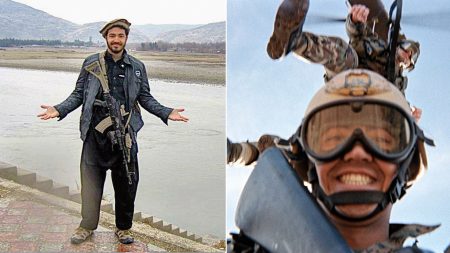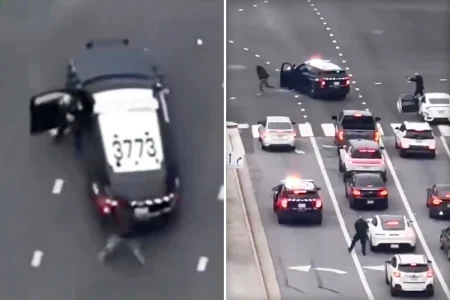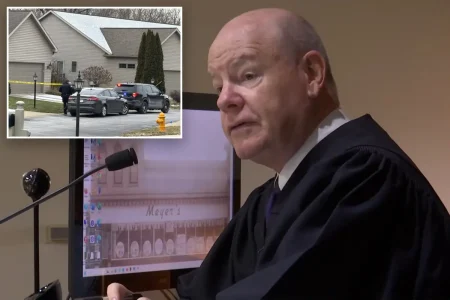Silicon Valley Rallies Around Ukrainian Refugee’s Memory After Tragic Death
In a powerful demonstration of solidarity and remembrance, Silicon Valley leaders are stepping forward to ensure that Iryna Zarutska, a Ukrainian refugee whose life was tragically cut short, will not be forgotten. Eoghan McCabe, CEO and founder of Intercom, has committed $500,000 to fund murals depicting Zarutska’s face across major American cities, with tech titan Elon Musk pledging an additional $1 million to support the initiative. This artistic memorial campaign comes in response to the shocking killing of Zarutska, who had fled to the United States in 2022 to escape the war in Ukraine, only to become the victim of a violent attack while riding a train in Charlotte, North Carolina. The surveillance footage of her stabbing has sparked nationwide conversations about public safety and criminal justice reform, particularly regarding repeat offenders and bail policies.
The memorial initiative is already gaining significant momentum, with organizers in discussions with over 1,000 artists nationwide to create prominent murals and poster campaigns in major cities. A person working closely with the campaign, who requested anonymity when speaking to Fox News Digital, explained that McCabe was motivated by a desire to prevent Zarutska’s story from being overlooked by mainstream media. The campaign also reflects growing concerns about public safety policies, with some drawing parallels to the murals and memorials that appeared across the country following George Floyd’s death in 2020. By creating these visual tributes, organizers hope to keep Zarutska’s memory alive while simultaneously drawing attention to broader issues of public safety and criminal justice that her case has highlighted.
The circumstances surrounding Zarutska’s death have intensified debate about how the criminal justice system handles repeat offenders. The suspect in her killing, Decarlos Brown Jr., reportedly had 14 prior arrests when he allegedly attacked her on the Lynx Blue Line train in Charlotte. Surveillance video shows a man in a red hoodie, identified as Brown, sitting behind Zarutska before standing up and stabbing her. This disturbing sequence of events, captured on camera and subsequently shared widely online, has prompted many to question why someone with such an extensive criminal history was free to move about the community. Brown was quickly apprehended after the attack and now faces charges of first-degree murder, with the Justice Department adding a federal charge of committing an act causing death on a mass transportation system.
Zarutska’s journey makes her death all the more poignant—she had come to America seeking safety from the Russia-Ukraine war in August 2022. At the time of her death, she was wearing her uniform from Zepeddie’s Pizzeria, where she worked. Her family, breaking their silence after the murder, issued a statement emphasizing that “this could have been anyone riding the light rail that night,” and expressing their commitment to preventing similar tragedies in the future. Their words reflect the random nature of the attack and highlight the vulnerability that many feel in public spaces, regardless of background or circumstance. Zarutska’s story has resonated deeply across the country precisely because it underscores how quickly safety can be shattered, even for those who have already endured tremendous hardship to reach what they hoped would be a secure environment.
The case has also drawn comments from political figures, including former President Donald Trump, who condemned the murder as “horrific” and questioned why Brown was not incarcerated given his criminal history. Trump specifically criticized “cashless bail” policies, suggesting they allowed a dangerous individual to remain on the streets despite multiple prior arrests. This political dimension has added another layer to the public discourse surrounding Zarutska’s death, with various stakeholders using the case to advocate for their preferred approaches to criminal justice. While these debates continue, the mural campaign initiated by McCabe and supported by Musk represents a more immediate, tangible response—one focused on remembering Zarutska as an individual rather than merely as a symbol in policy arguments.
As plans for the murals move forward, the initiative stands as a reminder of how art can serve as both memorial and message. By placing Zarutska’s image in prominent locations across America, the campaign aims to ensure that her story remains in the public consciousness long after the initial shock of her death has faded from headlines. For a young woman who crossed continents seeking refuge, only to have her life ended while riding public transportation to or from work, these murals offer a form of posthumous dignity—an acknowledgment that her life mattered and that her death should prompt reflection on how society protects its most vulnerable members. In the midst of tragedy, this creative response demonstrates how communities can come together to honor lives lost while simultaneously working toward a future where such senseless violence becomes increasingly rare.











